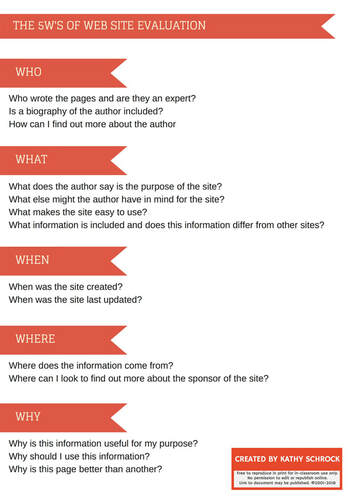Fake websites - how can you tell what is real?
I think we can all agree that it is very difficult today to determine what is real and what is fake on the internet. Digital manipulation, social media trending, and the belief that everything online is 'true' creates a real challenge when you are doing research or wanting to find out the 'true story' about something.
So how can we ensure that what we are reading or accessing is true? Well, there are a number of resources around that can help you determine what is real and what is not.
Fake Websites
There are some websites that have been created intentionally to show how easy it is to fool people into believing what they read. Just because something is on a website or news site does not mean that it is true. Many websites have misinformation or are very biased (which means they focus only on one point of view or give you information to try and get you to think in a certain way about a topic).
Below is a list of fake websites. Use the guidelines below to help you identify what is 'fake' about it.
Try and find between 5-10 examples that prove that this site is fake.
HINT: Some things you can check are:
All about explorers
The Dihydrogen Monoxide (DHMO) website
Save the Tree Octopus
Dog Island
Evaluating websites
There are a number of tools that can help you determine the legitimacy of a website. Have a look at the ones listed here.
Snopes
Snopes helps you learn whether or not some viral content is legitimate. They stay on top of urban legends and myths, Internet scams, etc. If there is some rumor making its way across the ‘Net, Snopes will typically have the legit scoop on it.
The CRAPP test
Evaluating website credibility
How to detect fake websites
Tips for spotting fake websites
So how can we ensure that what we are reading or accessing is true? Well, there are a number of resources around that can help you determine what is real and what is not.
Fake Websites
There are some websites that have been created intentionally to show how easy it is to fool people into believing what they read. Just because something is on a website or news site does not mean that it is true. Many websites have misinformation or are very biased (which means they focus only on one point of view or give you information to try and get you to think in a certain way about a topic).
Below is a list of fake websites. Use the guidelines below to help you identify what is 'fake' about it.
Try and find between 5-10 examples that prove that this site is fake.
HINT: Some things you can check are:
- The URL or web address. Does it look like a real domain?
- Check to see if the links go anywhere
- Check some of the names of people and places by doing a Google search. Are they real?
- Does the information make sense?
- Notice if there are spelling or grammatical errors
- If the information seems strange or silly TRUST YOUR INSTINCTS - you are probably right.
All about explorers
The Dihydrogen Monoxide (DHMO) website
Save the Tree Octopus
Dog Island
Evaluating websites
There are a number of tools that can help you determine the legitimacy of a website. Have a look at the ones listed here.
Snopes
Snopes helps you learn whether or not some viral content is legitimate. They stay on top of urban legends and myths, Internet scams, etc. If there is some rumor making its way across the ‘Net, Snopes will typically have the legit scoop on it.
The CRAPP test
Evaluating website credibility
How to detect fake websites
Tips for spotting fake websites
|
|
|

